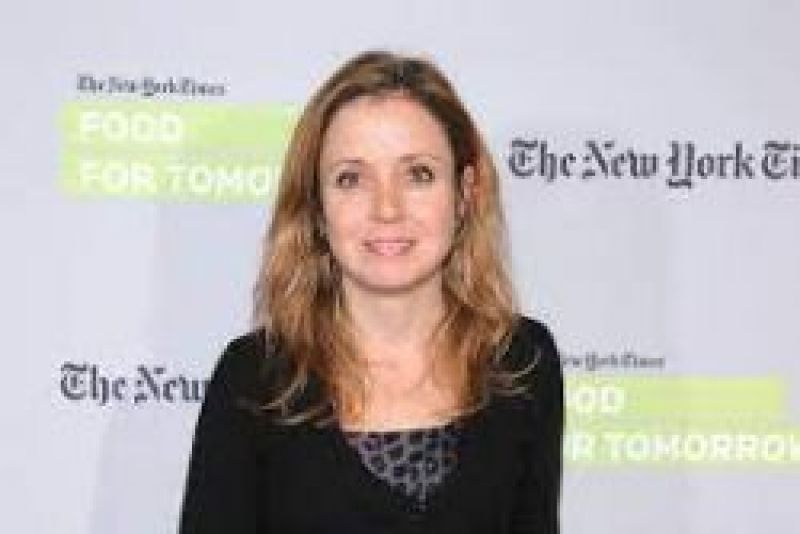- NASA Finds Ammonia Compounds on Jupiter Moon Europa |
- Remittance Inflow Surges 45% to $3.17bn in January |
- Militant Attacks Kill 33 in Balochistan; 92 Assailants Dead |
- Power generation at Payra Thermal Power Plant 1st unit starts after a month |
- Irregularities, injustice will no longer be accepted in politics: Jamaat Ameer |
Using Storytelling in Film to Re-Attach Ourselves to Our Food Systems

Danielle Nierenberg
Danielle Nierenberg
Greetings from an airplane—I’m on my way from Abu Dhabi, in the United Arab Emirates, to Park City, Utah, where the Sundance Film Festival is taking place.
I’ve been in Abu Dhabi as a judge for the Food Tech Challenge, which brought together food entrepreneurs and innovators from all over the world to submit ideas about changing food systems in the UAE. It’s been very exciting to be on the ground in the UAE, because food and agriculture advocates here are preparing for the next U.N. climate conference, COP28, which will be in Dubai in November.
So many organizations and activists are working to build up momentum, and I can’t wait to see what we can do over the next few months to continue highlighting the role of food in solving the climate crisis.
And this weekend, I’ll be in Utah moderating three days of sold-out talks, screenings, and tastings taking place during the Sundance Film Festival. More details HERE. And as I prepare for the trip, I’ve been reflecting on storytelling, and how the stories we tell can have real impact in the world.
Those in power have massive influence over what stories get told and funded, A-dae Romero Briones of the First Nations Development Institute said last year at the SXSW festival. We’ve become “disattached from our stories, just like we’ve become disattached from our foods,” she said. And, she adds, “You have to listen to their story. Society has to do the work.”
Storytelling has long been integral to the mission of Food Tank. During the early days of Covid-19, for example, we focused on under-covered stories of frontline workers and food producers. On this week’s episode of our podcast, Food Talk with Dani Nierenberg, our executive producer Rob Pera made a great point: At the beginning of the pandemic, with how little we knew, it almost felt like we were doing a miniseries on a totally new topic—and then that became our world.
At our events during Sundance, Food Tank is focusing on blue food systems, which encompass aquaculture and aquatic plants, fisheries, ocean farming, and more. And we’re recognizing that maritime food production isn’t a ‘miniseries’ or a side project but actually a central element of sustainable food systems.
More than 3 billion people around the world rely on blue foods for vital nutrients, according to the U.N. Food and Agriculture Organization, and nearly half the blue food workforce is female. And it could help address our global hunger issues, too: The High Level Panel for a Sustainable Ocean Economy predicts that more sustainable and responsible practices could help boost blue food production by six times. Many of us in the food movement—myself included, I’ll admit—have long focused primarily on terrestrial food systems, but we need to think holistically about how blue food systems fit into the stories we tell about regenerative transformation.
So in Utah, we’ll be helping share the story of blue food systems with a few films we’ve helped curate with Jen Bushman of Fed By Blue. We’ll see “SeaLegacy: The Voyage,” a film by Emmy-nominated director and SeaLegacy founder Andy Mann that documents ocean life for the purpose of conservation. The film “Feeding Tomorrow,” by Oliver English and Simon English, explores the overwhelming choices we make every day about what we eat, and Matthieu Rytz’s “Deep Rising” follows the environmental consequences of deep-sea mining on all life on Earth.
And I want to shout out “Hope In The Water,” another film we’ll be showcasing. The docuseries is produced by award-winning producer and writer David E. Kelley and celebrity chef and advocate Andrew Zimmern, and it highlights the abundance of innovative opportunities to restore our world’s oceans while responsibly producing food. And we’ll also once again be able to share “Food 2050,” a film by The Rockefeller Foundation and Media RED that spotlights 10 global food visionaries.
These events are a really unique opportunity to share these stories with culturally influential folks who might not otherwise have these conversations about food system transformation, and I’m excited to be back. Here’s what I appreciate about these films, too: Seeing a documentary about food is a good first step, but actually doing something about it is entirely different—and these films help tell us the specific ways we can make an impact with the information we’re learning and the stories we’re hearing.
Tickets are sold out… but you’re a Food Tanker. So if you happen to be in Park City during Sundance, email our co-founder Bernie Pollack at bernard@foodtank.com, and we’d love for you to be our guests. I broke my foot recently—not a fun way to start the new year—but I hope to see you as I hobble around the festival!
As part of Food Tank’s strategic plans to meet the momentum of the food movement in 2023, we’ll continue using film and other cultural spaces to spark dialogue about the urgent changes we need to see in the food movement. What are some food-related films that inspire you—that call you to action? Share them with me at danielle@foodtank.com.
(Danielle Nierenberg if the President of Food Tank and can be reached at danielle@foodtank.com)

